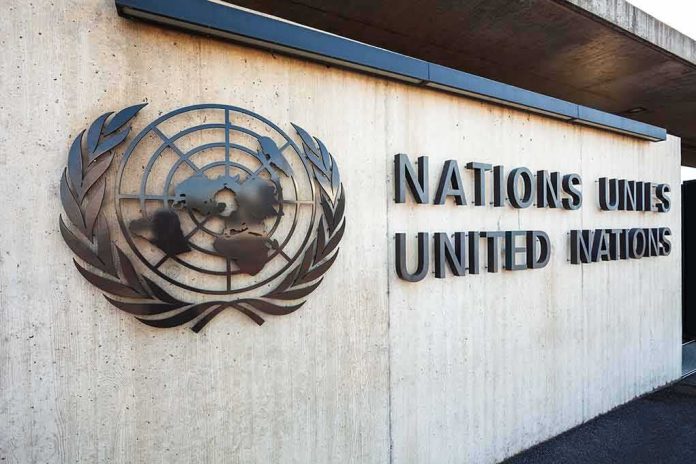
President Trump’s unwavering support for NATO’s right to down Russian jets violating alliance airspace signals a dramatic shift in U.S. foreign policy, reigniting debate over American priorities and security in a turbulent world.
Story Snapshot
- President Trump urges NATO to take firm military action against Russian incursions into allied airspace, emphasizing consequences for aggression.
- U.S. support for NATO responses will be conditional, with Trump stressing that American involvement “depends on the circumstances.”
- This assertive posture follows a series of Eastern European airspace violations by Russian aircraft, prompting renewed alliance solidarity.
- Conservative critics praise Trump’s leadership while warning against policies that would weaken U.S. sovereignty or constitutional values.
Trump’s Stand on NATO and Russian Aggression
President Donald Trump has made waves in Washington and across Europe by demanding that NATO allies take decisive military action when Russian aircraft violate alliance airspace. Trump’s stance comes after a series of alarming Eastern European incidents, where Russian jets reportedly breached NATO borders, testing the alliance’s resolve and raising fears of unchecked aggression. Conservatives see Trump’s move as a return to American strength, contrasting sharply with previous administrations that were accused of appeasement and globalist indecision.
Conditional U.S. Support: America First in Action
Trump’s message is clear: while the United States stands with its allies, automatic support can no longer be taken for granted. The President has stated that U.S. involvement in any NATO response “depends on the circumstances,” a phrase that signals renewed scrutiny of foreign entanglements and a prioritization of American interests. This approach appeals to those frustrated by decades of costly interventions and endless wars, reaffirming a commitment to national sovereignty and responsible stewardship of American power.
Constitutional Values and the Dangers of Global Overreach
Conservative analysts argue that Trump’s conditional support reflects a necessary defense of the U.S. Constitution and a rejection of globalist overreach. By drawing clear lines for engagement, the administration aims to prevent the erosion of congressional authority over war powers and protect the nation from being dragged into conflicts that do not serve core American interests. Supporters warn that any policy undermining these principles threatens not only military readiness but also foundational liberties such as the Second Amendment and individual rights cherished by patriots nationwide.
Impact on NATO and Conservative Reactions
NATO’s credibility hinges on its willingness to enforce red lines. Trump’s backing of strong military responses—while making U.S. participation conditional—has energized allies who demand accountability but also sparked debate over the future of collective defense. Many conservatives applaud this strategy, viewing it as a necessary correction to years of unchecked globalism and fiscal mismanagement. They urge continued vigilance against any agenda, foreign or domestic, that compromises American values or places unnecessary burdens on U.S. taxpayers.
Sources
Support from Trump for UN rights




